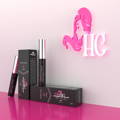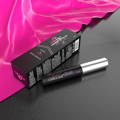Walnuts have always been known as a great source of Omega-3 fatty acids. They were consumed as nuts since time immemorial. Over the last few decades we have come across the benefits that walnut oil has for our skin, hair and health as well. Its consumption has seen many changing trends in the last few decades. It has varied benefits and all have been proved to be equally beneficial for humans.
So we thought of discussing the benefits of walnut oil (Akhrot tel) today. Read on to know more about these benefits in detail.
Walnut Oil Benefits For Skin:
Walnut oil is high in both vitamins and minerals. It works wonders on the skin and is highly recommended for people who want a flawless and ageless skin. Here are the benefits of walnut oil for the skin:
1. Fighting Wrinkles:
Walnut oil is great for fighting wrinkles. It has a greasy texture but its regular application can actually help the fine lines and wrinkles to disappear with time (1).
2. Remedy For Infection:
We all experience those horrible fungal infections that leave us feeling helpless. Walnut oil is your answer to those infections. It helps fight fungal infections really well (2).
3. Helps Treat Psoriasis:
We all dread facing the persistent skin problem called psoriasis. Walnut oil beautifully helps you to cure it (3). You may either apply it topically or simply add it to your bath.
4. Great Antioxidant:
Walnut oil is a very good antioxidant and helps fight aging really well. It is extremely good for your skin (4).
Walnut Oil Benefits For Hair:
We all dream of those beautiful looking tresses, free from all problems. But today’s pollution-filled environment hardly fulfills our dream. Here are the benefits of walnut oil for hair:
5. Helps Fight Hair Loss:
No one likes seeing innumerable hairs falling each time he/she combs. Hair loss can be stressful. Walnut oil has often helped people fight hair loss with the help of Omega-3 fatty acids that prevent cell damage (5).
Oils are making a comeback! It has multiple uses, and can contribute a lot towards making you healthy. Take a look at these to know about the benefits of various oils.
6. Fights Dandruff:
Walnut oil can be great for fighting dandruff as well. It helps keep the scalp clean by removing all the dirt from it. Apply it regularly to get maximum benefits. It prevents the scalp from getting flaky, hence preventing dandruff (6).
7. Promotes Hair Growth:
Walnut oil promotes hair growth as it is high on potassium. Potassium is essential because it helps the regeneration of cells and hence accelerates hair growth (7).
Walnut Oil Benefits for Health:
Walnut oil’s consumption has undergone a huge change across the world. It has some of the best health benefits. We have compiled a list of its health benefits:
8. Reduces Risk Of Cardiovascular Diseases:
Consuming walnut oil helps lower the cholesterol levels in the body. This way it helps reduce the risk of cardiovascular diseases. You must include walnut oil in your regular diet (8).
9. Boosts Blood Vessel Functioning:
Consumption of walnut oil helps a great deal in boosting the blood vessel’s functioning overall. Try different recipes that use walnut oil. You would find some very tasty recipes using walnut oil (9).
10. Cuts Belly Fat:
Yes, you heard it right. Walnut oil helps cut belly fat. It can be easily consumed by substituting other oil with walnut oil (10). Adding walnut oil to your salads can make you feel full and it also helps the body fight its craving for fats.
Walnut oil helps you fight insomnia and ensures you a good night’s sleep. It contains melatonin which promotes sleep and regulates it too. It is good for people with irregular sleeping patterns.
So these were some of the many benefits of walnut oil.






